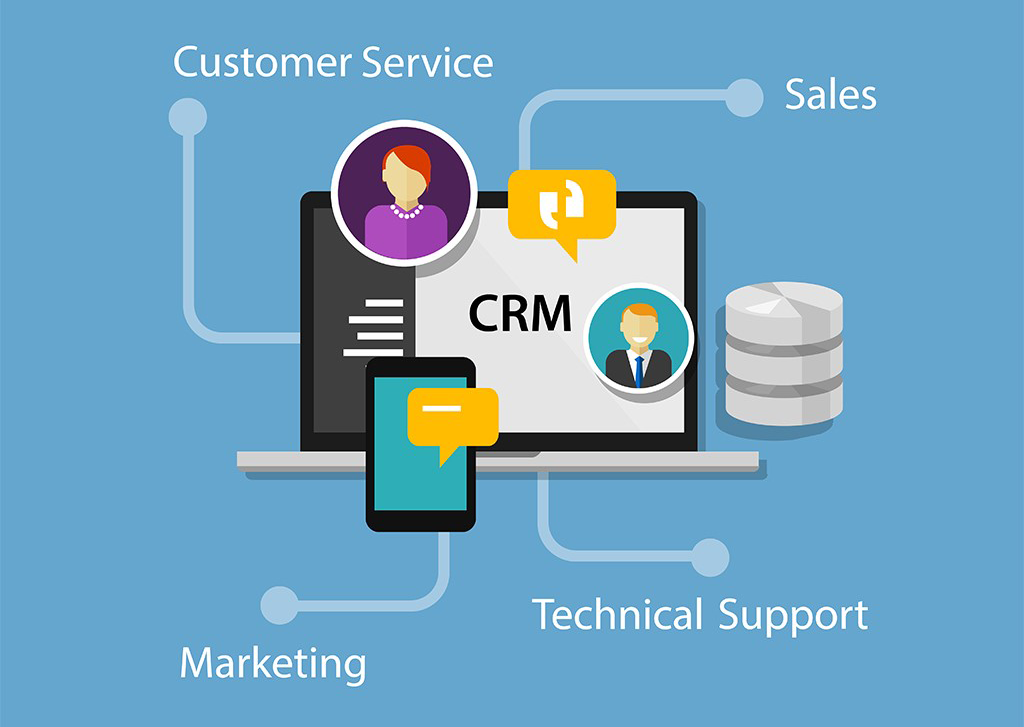What does CRM mean in software? The question is urgent for many business owners who still hesitate about deploying it. Let us provide insights into this question.
Customer Relationship Management is what CRM means. This is the progressive software aimed at managing all a company’s relationships and communications with clients, partners and perspective consumers.
The technological solution like the bpm’online system aids companies to stay connected to their clients, streamline all the business processes and increase profitability. Put simply, it is a program, which enhances customer and sales management with a view to improve efficiency of your reps. The intelligent CRM system enables a company to concentrate on productive interactions with individual clients whether they are leads, loyal customers, partners or colleagues.

Business without CRM
Active reps generate an ocean of information. They may be out on the move when they talk to devoted customers, meet prospects and find out useful information about customers. But without top notch CRM all this data is kept in a form of handwritten notes, personal mobile devices or just inside the heads of your managers.
Together with this, it allows customers to contact your salespeople through multiple communication channels – phone, email, social networks or the customer support service of your website. The consumers ask questions, follow up on orders, complain or leave feedbacks. Without a unified system for client relationships communications are likely to be missed or misunderstood in streams of information what results in unsatisfactory response to the clients’ needs.
Important details may be lost, meetings may not be followed up immediately and profitable clients become a matter of guesswork – all these things get even worse when a manager is dismissed if there is no such a platform, which can handle and automate business processes.
Supposing your reps succeed in gathering all this data but they are unlikely to benefit from it to the fullest. It is very hard to extract intelligence. Reports are difficult to generate – actually they are waste of useful selling time. Salespeople may not take into consideration what they are up to in reality that results in that they cannot provide the right support at the proper time. And a lack of control leads to a lack of responsibility from the sales team. This is the key answer to what does CRM mean in software.
What does CRM mean in Software for Business?

Owners of small and medium size business understand that they must have a strategy for the future development. What does CRM change for small and medium business? With such an intelligent platform you have a comprehensive view of all your clients. Every detail about each customer is presented in a simple, customizable dashboard, in which you can see the entire history of communication with them, statuses of their orders, the volume of transactions or any customer support issues.
Moreover, the tool can collect and process data from their social media profiles such as preferences and dislikes or what they say or share about your company or products/services you provide. By having this information, your managers get a better understanding of your clients’ needs and expectations and they see the ways to increase customers’ satisfaction.
A sales team benefits from the CRM software as the system can:
- Identify and classify leads and put them into the accurately segmented client database. This function gives an opportunity to pay attention and put energy into the most profitable customers.
- Gain more referrals from loyal clients. By being fully aware of customers’ expectations you have more chances to keep them happy with enhanced service. Satisfied clients will eagerly recommend your company to their friends. Beside this, happy customers spend by 30% more, so that your reps have more opportunities for cross and up-sell.
- Improve products and services. The advanced CRM system collects information from various sources. This provides the managers with precise insights into your clients’ preferences and expectations from your company and what they say about your products/services on the whole. So you can make your services much better and identify bottlenecks and errors on an early stage.
- Generate a sales funnel. The bpm’online CRM software reflects profitability of your company’ sales process breakdown into periods, territories, managers/clients or products/services. Such a tool empowers the reps to estimate what is necessary to accomplish set targets successfully.
- Make sales forecasting. What does CRM mean in forecasting? The system analyzes the sales results over a specific period to deliver a more accurate and real-time prediction of the future revenues and goal achievement. The software gives you actual data on the types of deals your company closes, what markets your offers appeal to and how well your managers perform.
- Show a clear path from leads to repeated sales. The CRM system builds customers’ journey maps to reflect all potential touch points through which the clients may want to connect to your company.
- Organize interaction with the clients via various communication channels. Increase customers engagement with a company via their most suitable communication channels – digital (emailing, website, texting, chatting) or traditional (face-to-face communication, calling, letters) channels. The crucially important feature of CRM is that the software records a total history of communication across these touch points what gives the right answer for what does CRM mean in software.
Increased efficiency is what gives the best answer for what does CRM mean in software? The intelligent platform is meant to replace all manual processes and enhance business processes. The solution allows the reps to understand their accountabilities to the clients via the customer lifecycle. If these accountabilities are not fulfilled, it is easy to see what went wrong and where, who let the team down and how to avoid these mistakes in future.

